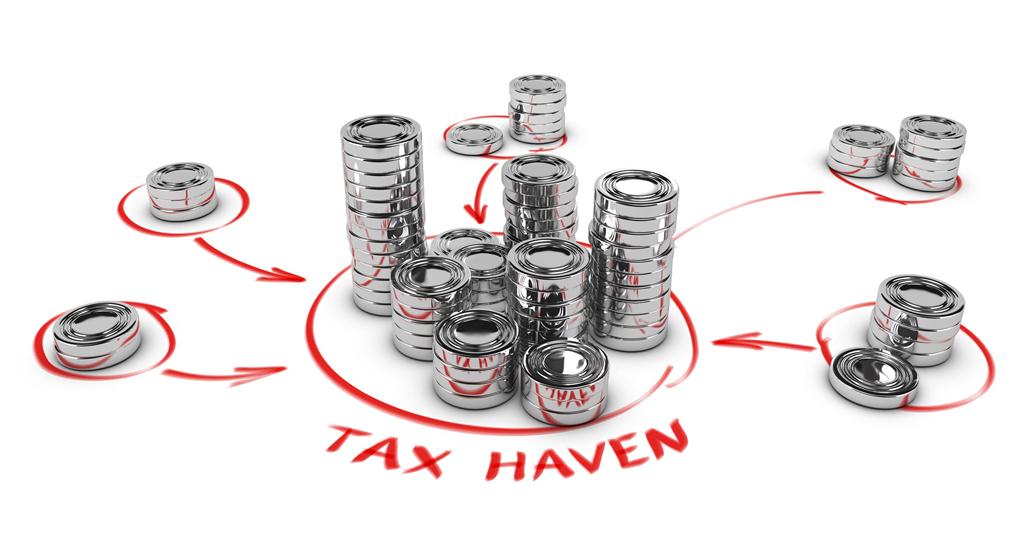Tax haven objectives are conflicting
PHILLEPUS UUSIKU
The main purpose for a country to establish a tax haven is to attract foreign investors with the view and expectation that it will help them solve their economic problems by providing much needed capital, expertise, skills and employment.
In 1995, Namibia adopted a policy for the establishment of an Export Processing Zones (EPZ) regime to serve as a tax haven for export-oriented manufacturing enterprises in the country.
Registered manufacturers in Namibia only have until 31 December 2025 to enjoy the tax incentives granted by the Export Processing Zones (EPZ).
This comes after the Income Tax Amendment Act, 2 repealed the tax incentives granted to registered manufacturers in terms of the Export Processing Zones Act.
Simonis Storm (SS) told Market Watch that tax haven is important to a nation like Namibia that is having a small revenue base and is still in its developing phase.
However, at the same time one has to consider the main objective of the investor, that is to minimize the taxpayer’s total tax burden by subjecting at least a part of their income to a lower effective rate than would otherwise be applicable.
“Often the two objectives are conflicting, these manifests where the host government wants to have more supervision versus the investor wanting lesser supervision. So, a tax haven status is not a solution for a country’s economic problems,” SS said.
Investment vs Revenue
Namibia is in desperate need of foreign direct investment (FDI) too boost economic growth as it has exhausted most of its growth drivers.
Theoretically, repealing of tax incentives will bring in more revenue given the higher tax rate but it will also incentivize those using it to withdraw and move on to better pastures, SS added.
Hence, given the current state, Namibia is less likely to attract the much-needed investment to enhance economic growth.
Simonis Storm notes that not only will Namibia not be able to attract investment as a result of repealing the tax incentives, but also because of the uncertain regulatory environment, high cost of doing business, low skill level, rent-seeking behaviour, high exchange controls, rigid work force, amongst others.
Policy formulation
This calls for comprehensive policy drafting, coordination and implementation.
“It is true that low tax rates are perhaps the key attraction but low cost of doing business, existence of liberal banking regulations, minimal exchange controls, good communications service, a well-developed legal system and a high degree of political and financial stability also help to make a country a successful tax haven,” SS emphasised.
“We should be cautious not to become overly reliant on foreigners, because the greater our dependence on tax haven activities, the more unstable our economic situation because of the volatility, fickleness and sensitivities of these corporations,” SS said.
A well-balanced approach based on research should minimize the negative effects and enhance the positive impact. [email protected]
The main purpose for a country to establish a tax haven is to attract foreign investors with the view and expectation that it will help them solve their economic problems by providing much needed capital, expertise, skills and employment.
In 1995, Namibia adopted a policy for the establishment of an Export Processing Zones (EPZ) regime to serve as a tax haven for export-oriented manufacturing enterprises in the country.
Registered manufacturers in Namibia only have until 31 December 2025 to enjoy the tax incentives granted by the Export Processing Zones (EPZ).
This comes after the Income Tax Amendment Act, 2 repealed the tax incentives granted to registered manufacturers in terms of the Export Processing Zones Act.
Simonis Storm (SS) told Market Watch that tax haven is important to a nation like Namibia that is having a small revenue base and is still in its developing phase.
However, at the same time one has to consider the main objective of the investor, that is to minimize the taxpayer’s total tax burden by subjecting at least a part of their income to a lower effective rate than would otherwise be applicable.
“Often the two objectives are conflicting, these manifests where the host government wants to have more supervision versus the investor wanting lesser supervision. So, a tax haven status is not a solution for a country’s economic problems,” SS said.
Investment vs Revenue
Namibia is in desperate need of foreign direct investment (FDI) too boost economic growth as it has exhausted most of its growth drivers.
Theoretically, repealing of tax incentives will bring in more revenue given the higher tax rate but it will also incentivize those using it to withdraw and move on to better pastures, SS added.
Hence, given the current state, Namibia is less likely to attract the much-needed investment to enhance economic growth.
Simonis Storm notes that not only will Namibia not be able to attract investment as a result of repealing the tax incentives, but also because of the uncertain regulatory environment, high cost of doing business, low skill level, rent-seeking behaviour, high exchange controls, rigid work force, amongst others.
Policy formulation
This calls for comprehensive policy drafting, coordination and implementation.
“It is true that low tax rates are perhaps the key attraction but low cost of doing business, existence of liberal banking regulations, minimal exchange controls, good communications service, a well-developed legal system and a high degree of political and financial stability also help to make a country a successful tax haven,” SS emphasised.
“We should be cautious not to become overly reliant on foreigners, because the greater our dependence on tax haven activities, the more unstable our economic situation because of the volatility, fickleness and sensitivities of these corporations,” SS said.
A well-balanced approach based on research should minimize the negative effects and enhance the positive impact. [email protected]




Kommentaar
Republikein
Geen kommentaar is op hierdie artikel gelaat nie